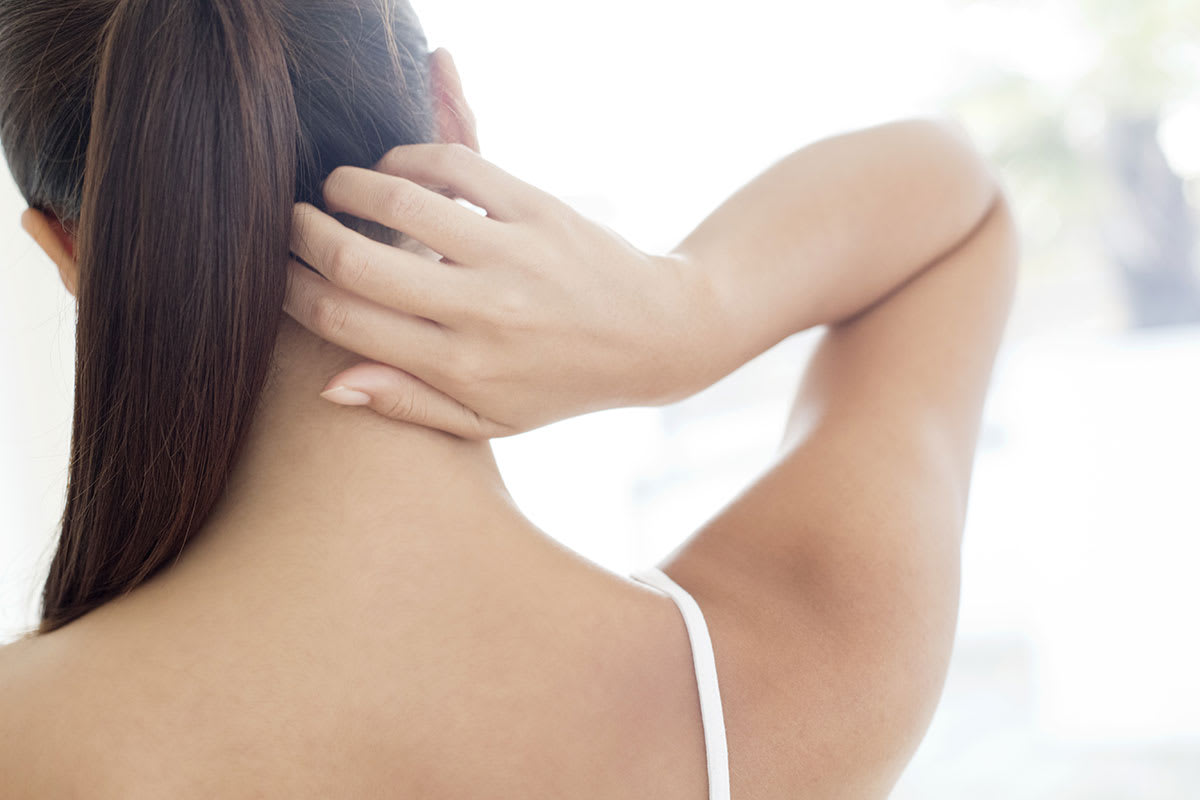Best ways to Take Care Of An Itchy Scalp

1. What causes an itchy scalp?
2. What are the symptoms of an itchy scalp?
3. How to treat an itchy scalp?
4. How to prevent an itchy scalp?
What’s the first thing that comes to your mind when your scalp starts itching? Lice, maybe. But what if we told you that it can also be an itchy scalp! Over 75% of people in the world suffer from an itchy scalp, which means you aren’t alone in this fight. When that irresistible urge to scratch your scalp kicks in and you can’t stop, you know you have an emergency scalp situation to deal with.
An itchy scalp, also called scalp pruritus, is often accompanied by scabbed or flaking skin. Though an itchy scalp isn’t very serious, it can be a symptom of an underlying condition.
What causes an itchy scalp?
Finding the causes of an itchy scalp are also the key to finding the right itchy scalp treatments. The major culprits when it comes to an itchy scalp are:
• Dandruff:
Dandruff, also known as seborrhoeic dermatitis, is one of the major itchy scalp causes. Did you know that there is yeast thriving on your scalp? As icky as it sounds, the yeast is called Malassezia globose, which feeds on the sebum that your scalp produces and creates a by-product called oleic acid. Though it’s usually harmless, 1 in 2 people tend to react to oleic acid that in turn triggers dandruff. Dandruff is often accompanied by itching, flaking, reddened skin, and yellow or white scales.
• Psoriasis:
This autoimmune disaster causes raised, reddish, scaly patches on your scalp or skin. While the causes remain unknown, the condition is not contagious.
• Tinea capitis:
Also known as ringworm, this fungal infection can affect your scalp and even dig deep into the hair follicles. This causes round patches of *hair loss that keep expanding over time. The rash caused by this fungal infection appears raised with black dots or has a stubbly appearance.
• Head lice:
You might think of head lice as something that only schoolchildren get, but these tiny, annoying creatures can invade anyone’s scalp. They are glued to the hair shaft and cannot be shaken off easily. Let’s get this myth out of the way that bad hair hygiene causes head lice; lice prefer clean hair. So, your hair care habits are not to be blamed. 9
The other causes of itchy scalp are:
• Shingles
• Diabetes
• An anxiety disorder
• Contact dermatitis
• Migraine headaches
• Allergic reaction to medications
• Discoid lupus
• Scarring alopecia
• Hair loss caused by frequent heat styling
What are the symptoms of an itchy scalp?
Decoding the first signs can save you from an extremely itchy scalp, and the following symptoms will put you on guard:
• Dry skin
• Redness
• Irritated skin
• Scalp swelling
• Scales or patches on the scalp
• Bald patches
• Low-grade fever
• Pus-filled sores
How to treat an itchy scalp?
Itchy scalp treatments
Treating an itchy scalp depends largely on what causes it.
• If it’s caused by dandruff, mostly antifungal creams, topical steroids, anti-dandruff active, coal tar or keratolytic are used. Each of these techniques have their unique way of reducing oil on the scalp or killing the fungus that causes the itching.
• When a lice causes an itchy scalp, you will get immediate relief with head lice treatments that include combing solutions or chemical treatments.
• If itchy scalp is caused by tinea capitis, antifungal medicines prove effective in giving you immediate relief.
• For itchy scalp caused by psoriasis, psoriasis/proper medication will control the itchy scalp.
A guide to hair products
The hair products you choose play a big role in managing an itchy scalp. Here’s what you need:
• A gentle shampoo that cleanses your scalp without hurting it and gives you great hair as well. Try Head & Shoulders Itchy Scalp Care Shampoo for flake-free hair. With regular use, you’ll get an all-day relief from itch (associated with dandruff). This shampoo is formulated with Head & Shoulders’ NEW Fresh Scent Technology for an improved in-shower experience. The eucalyptus present in the soothing itch-control formula relieves scalp itch, dry scalp and irritation, and leaves your hair 100% flake-free (with regular use).
• For better results, you can follow-up this shampoo with Head & Shoulders Itchy Scalp Care Conditioner that gently moisturises your scalp and hair and leaves it fresh and clean all day long.
• If you are pinched for time and cannot go through your regular shampoo and conditioner routine, how about a combination of these? You can try Head & Shoulders Itchy Scalp Care 2-in-1 Dandruff Shampoo + Conditioner that helps manage dry itchy scalp. The HydraZinc formula immediately soothes and protects against an itchy scalp, and the eucalyptus leaves your scalp clean and healthy.
How to prevent an itchy scalp?
Let us look at some preventive measures that can keep itchy scalp at bay.
• Wash your hair at regular intervals to remove excess oils. Make sure that you use warm water and not hot water as it can irritate and dry out your scalp.
• Try and avoid using products that contain dyes, preservatives, and fragrances as these tend to trigger allergies.
• Refrain from sharing items like hats, towels, combs, brushes, as it can cause the spread of head lice.
An itchy scalp can cause distress, but there are some effective ways to keep it under control. With the help of the right hair products and some good hair care habits, you can manage this condition. A healthy scalp is the key to healthy hair.
*All references on this page refers to hair fall or hair loss due to breakage.
